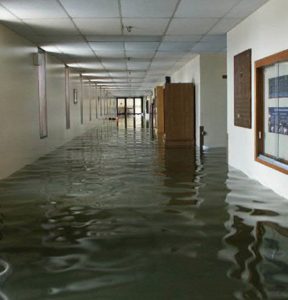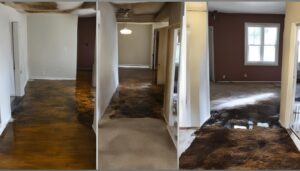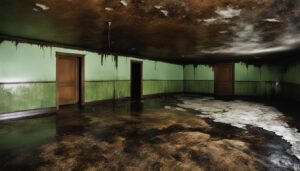When your sewer backs up, you have a huge mess on your hands. However, you can get great help with sewage backup cleanup from professionals like Cleaning and Restoration Specialists. But before you worry about sewage backing up, you can take these steps to prevent problems from occurring.
CORRECTLY CLEAN UP GREASE
You’ve probably heard that dumping grease down the drain is a bad idea. But why is this not recommended? What risks does this practice pose to a sewer backup?
First of all, oil and water don’t mix. Water does not sufficiently break down grease. When grease builds up in your plumbing, it forms blockades that need to be professionally removed.
You can stop a backup from happening by disposing your grease without clogging your pipes. First, let grease solidify in a disposable, yet heat resistant, container such as a steel can. Then toss it in the trash. Second, if you are dealing with liquid oil, pour it into an empty bottle and throw it away. You will keep grease from causing a sewage backup by taking these simple steps.
WATCH WHAT YOU FLUSH
Your pipes aren’t intended to handle more man-made products than toilet paper. Toilet paper is designed to quickly break down and not block your pipes. However, other wipes and toilet paper, diapers, feminine products and cotton-based products do not break down and can cause clogs. It’s also not a good idea to flush kitty litter, hair, dental floss, condoms, cigarette butts or any other materials.
Keep it simple–unless it is toilet paper, do not flush it. Throw everything in the trash, even items like wipes that are marked to be flushable. By watching what you flush, you can prevent your toilet from backing up. You’ll save yourself a huge, nasty mess by tossing instead of flushing.
CONSIDER UPGRADES
Even if you take all these precautions, you can still have backups if your sewer lines aren’t clear. You may need to consider upgrading your plumbing and septic system to ward off problems. These are several ideas that may work in your home.
If you have a basement that often floods, it may be useful to install a sump pump. This pump system automatically goes into action when it senses an overflow of water. You need to regularly maintain your sump pump to prevent backups from happening.
You can also install a prevention valve on your sewer line. This valve allows the water to flow in only one direction. It keeps the sewer liquid from entering your home. Check with your local government prior to installation to ensure that you are following building codes.
Another idea is to clean or replace your sewer lines. In older neighborhoods, tree roots can cut through existing lines and cause blockages. You can hire someone to clear out your sewer lines and reline the pipes with root-resistant upgrades. This type of upgrade can prevent backups for decades to come.
WHEN IT’S TIME TO HIRE A PROFESSIONAL
No matter how careful you may be, sewer backups still may happen. It’s important to call for professional help within 24 hours to minimize water damage and the spread of disease. Cleaning and Restoration Specialists will fully handle your sewage backup cleanup. Contact us at (210) 944-4382 as soon as you notice a problem.









